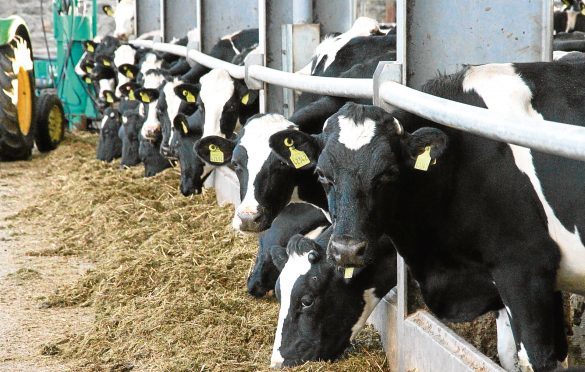UK farm incomes rose in 2017 thanks to higher prices for wheat, milk and pigs.
Figures released from the UK farming minister Defra reveal UK farmers’ income increased by 41% last year, with the sector’s contribution to the UK economy up 10% to £10.3 billion.
Total Income From Farming (Tiff) in real terms rose by 41% to £8.743bn, while average individual incomes in real terms were also up 41% to £29,794.
In a report, Defra said: “The key contributors to the change were the rises in the value of milk by £1,044m, wheat by £368m, cattle and pigs by around £230m and oilseed rape £223m.
“In contrast costs were higher with animal feed and energy costs showing the largest increases, up £577m and £131m respectively.”
Overall output from crops was up 14% to £9.508bn, with the value of wheat up £368m to £1,992bn due to a 2.7% increase in volumes and a 19% increase in prices.
The value of barley was up £194m to £893m, while the value of oilseed rape increased by £223m to £764m.
Potatoes rose in value by £86m to £897m, while vegetables increased by £47m to £1.456bn, and fruit increased by £60m to £759m.
The total value of output from the livestock sector was 13% higher at £14.412bn, with the value of milk up to £4.344bn.
The value of eggs was up by £21m to £624m, while the value of beef increased by £225m to £2.989bn.
Pigmeat increased in value to £1.329bn, sheepmeat was up £46m to £1.197bn, and poultry meat rose by £136m to £2.418bn.
Costs were also up with animal feed up by £577m to £5.127bn, energy up £131m to £1.263bn and fertiliser costs up £85m to £1.345bn.
The value of subsidy support through the Basic Payment Scheme increased by 2.4% to £3.25bn as a result of the favourable exchange rate.
